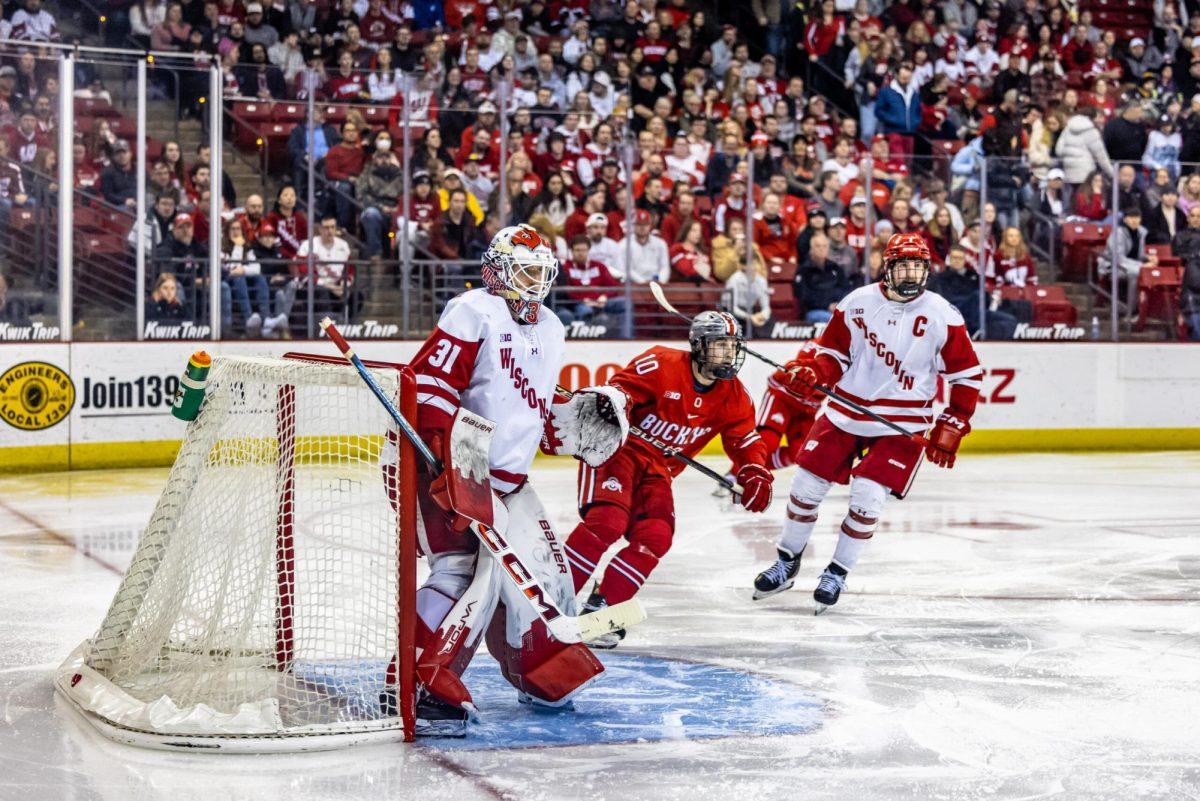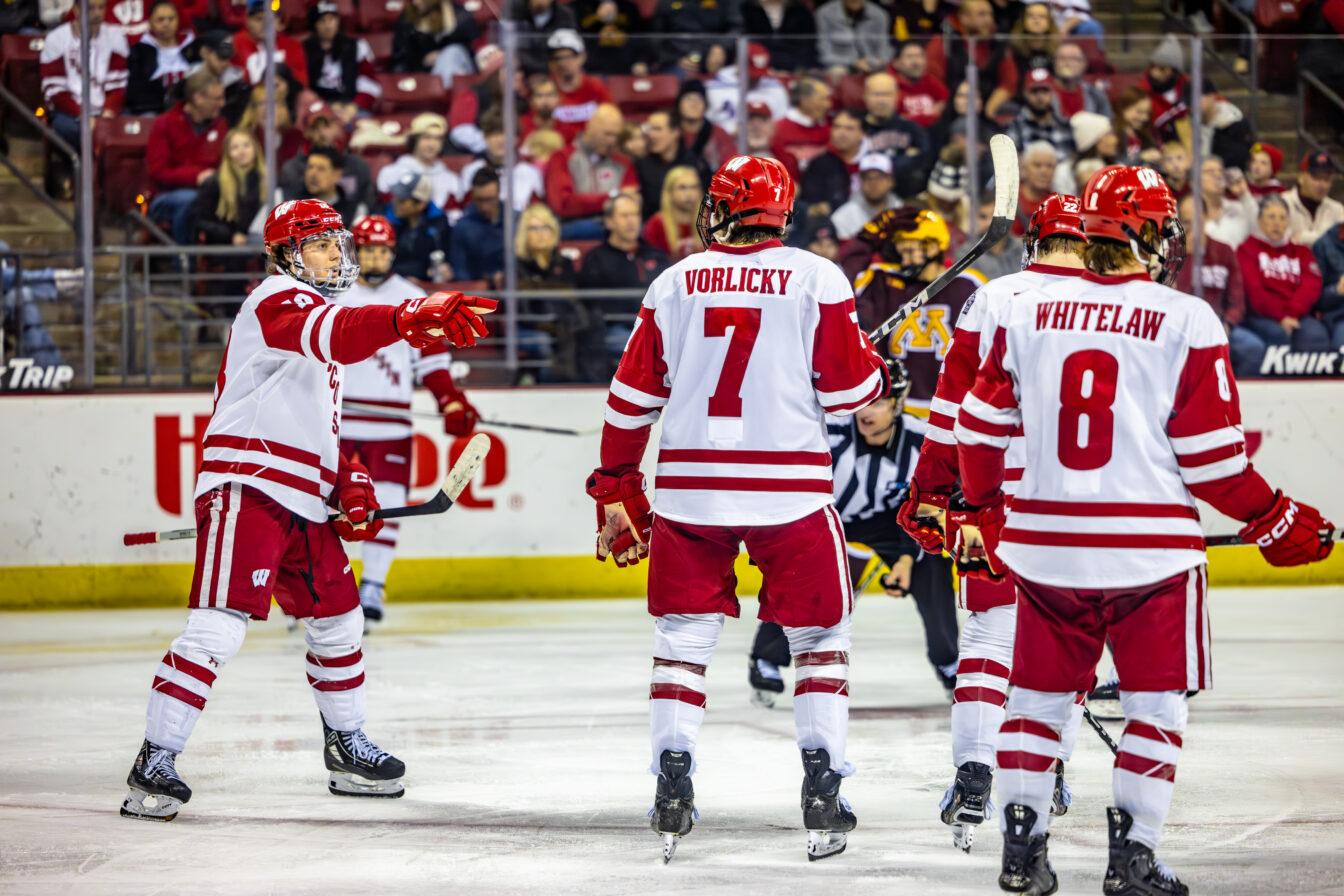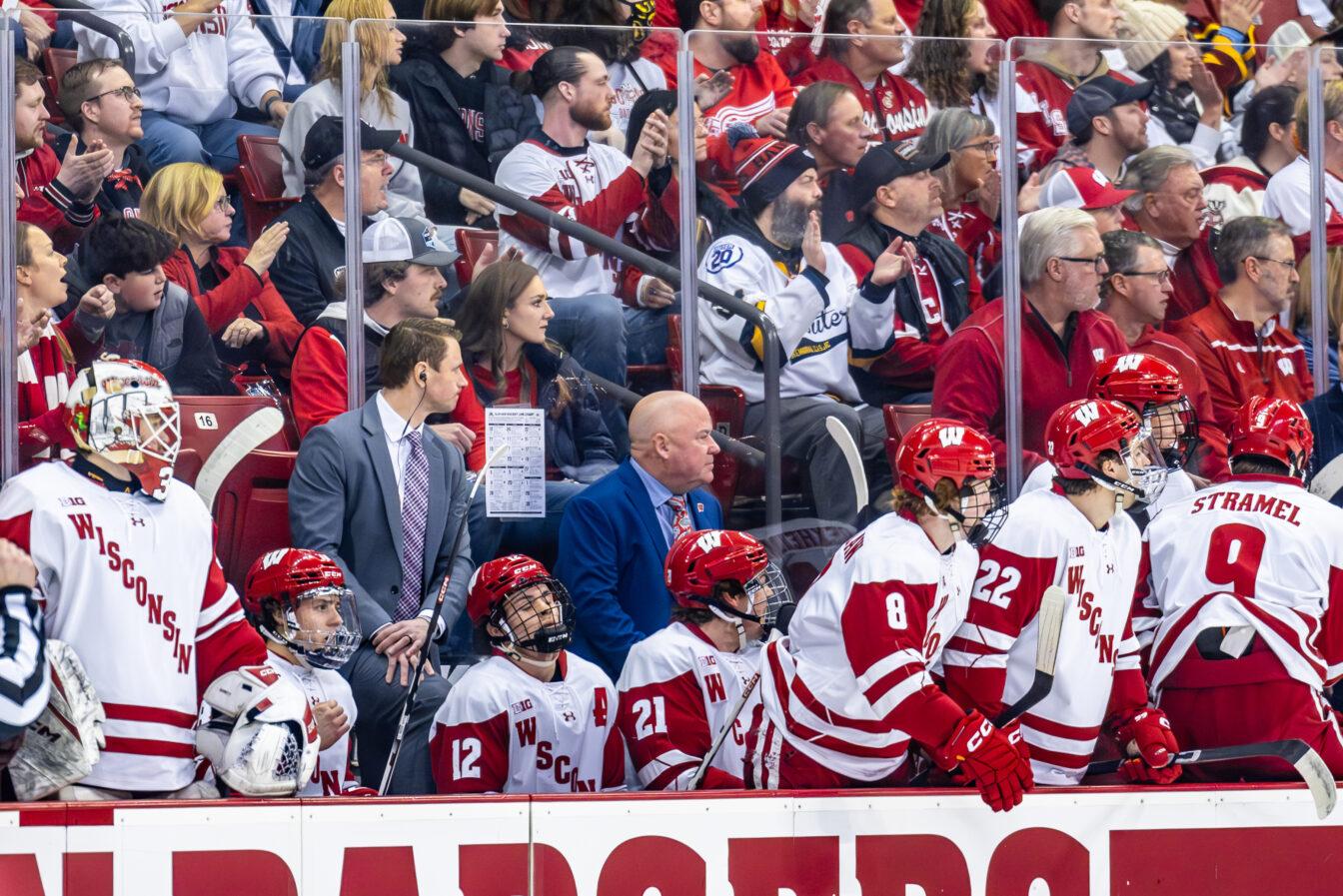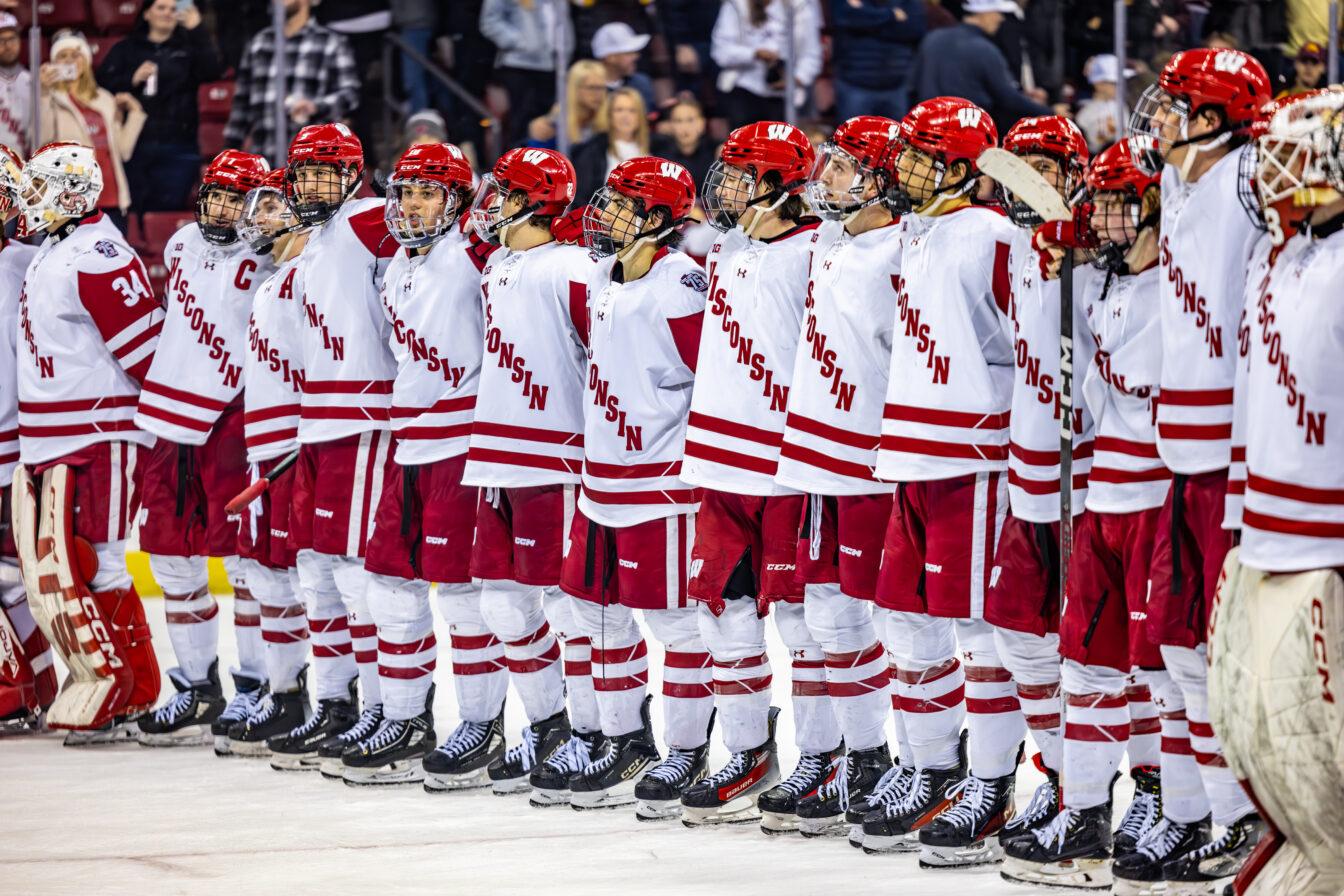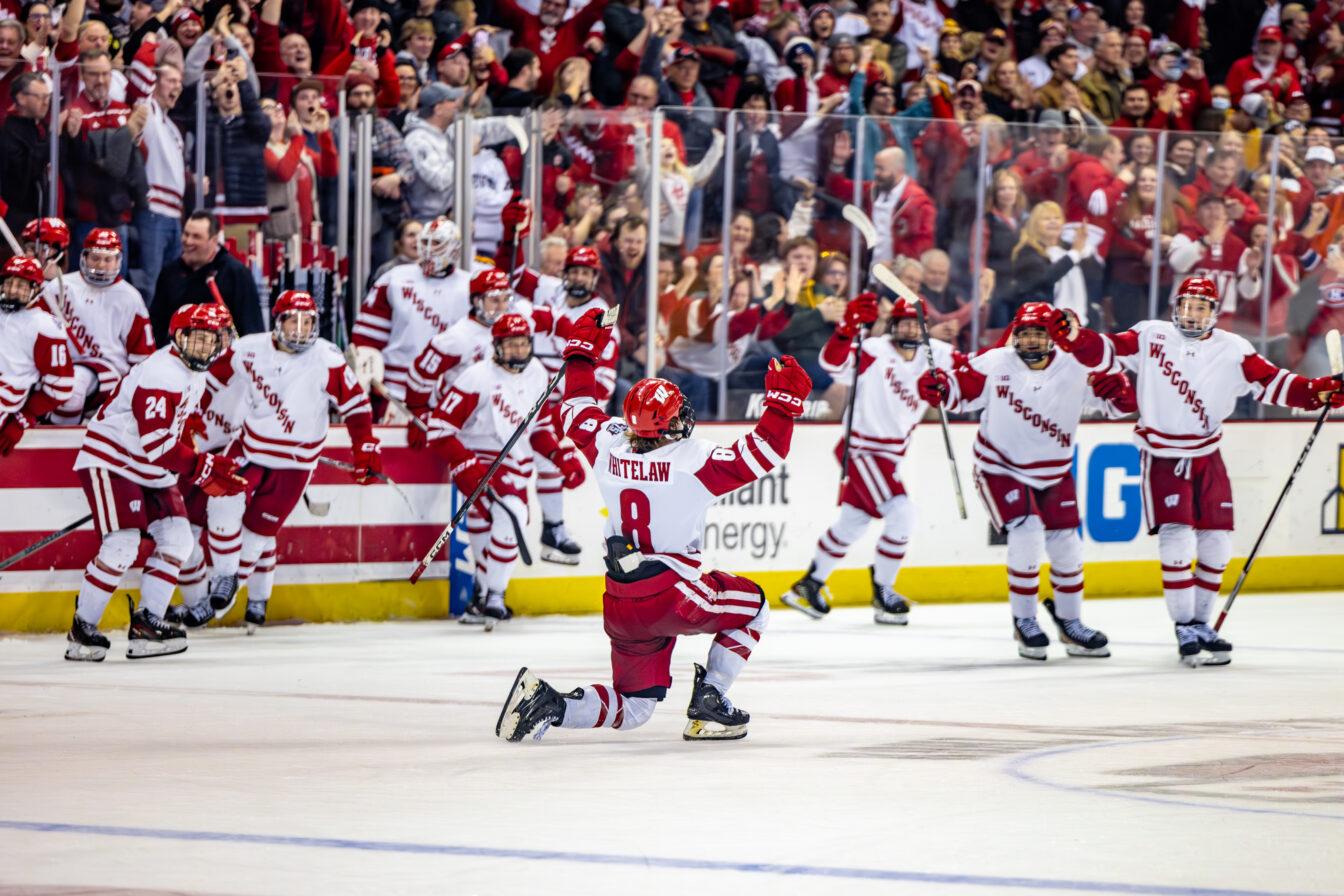
Ben Street knows it. Mike Eaves and Brendan Smith do too.
The Wisconsin men’s hockey team has had a charmed season in making its run to the Frozen Four — and possibly the program’s seventh national title. Lots of little things happened that added up in a big way: players staying, opportunities to play in big games and maybe most importantly, a lack of injuries.
“It’s not wood, but it will do,” Street said with a chuckle, as he tapped the practice rink boards in reference to the Badgers’ health this season.
Aside from senior tri-captain Blake Geoffrion missing a game early in the season and a two-game series at Michigan Tech at the end of February, Wisconsin has been lucky to avoid the injury bug. The fact he was able to return from the concussion with no ill effects is a big reason the Badgers are one of the last four college hockey teams standing, as the Brentwood, Tenn. native had two goals and three assists in Wisconsin’s two West Regional games.
“Any coach will tell you that you need a little bit of lady luck on your side, and having good travel and having people that are healthy makes a big difference,” Eaves, UW’s head coach said.
“The biggest thing I think is people not getting hurt,” Smith said. “That comes along in the season when your top players go down and it really affects — because somebody else has to step up and maybe they don’t do the exact same job.”
WCHA tournament champion North Dakota knows the pain of injury — the Sioux lost former All-WCHA defenseman Chay Genoway to head injury in November and UND struggled until a second-half surge.
In addition to staying injury free, the Badgers have also stayed, well, for lack of a better term, the same team. UW’s seven-man senior class is the Badgers’ biggest since the groups that won it all in 2006 and fell one overtime goal short of the Frozen Four in 2007.
“First time we’ve been an upperclassmen team since we won it,” Eaves said. “You talk to any college coach, and he’ll tell you, to have a legitimate chance, if you can count on that cycle, that every four years you’re going to be an upperclassman team, those are going to be pretty good years for yourself.”
The price of having a large senior class is if a player lasts until their senior year, they most likely weren’t drafted by the NHL. Teams with successful pedigrees tend to attract top talent — which then bolts for a paycheck after one or two years.
Case in point, WCHA regular season champion Denver — just two weeks removed from the NCAA tournament — already lost two of its top players in Joe Colborne and Patrick Wiercioch, both of whom played just two seasons with the Pioneers.
“Everybody wants to be here, it’s not, at this point, it’s not guys playing for NHL contracts, it’s guys playing to win a national championship,” Street said. “Guys aren’t taking days off because they’re thinking about the $1 million down the road, they’re thinking about now.”
‘Now’ has been kind to the Badgers, many of whom are having career years. Senior Michael Davies is the team’s leading scorer with 19 goals and 32 assists for 51 points. His previous single-season high for points was 24. Geoffrion’s decision to come back — it was assumed the second-round pick would leave after his junior year — has paid off both for the Badgers and himself personally (he’ll find out Friday if he’s going to be Wisconsin’s first Hobey Baker Award winner).
“Our senior class has been a big part of who we are, being an upper-classmen team,” sophomore Derek Stepan said. “The younger guys have held their own too. It’s rare when you can have a team come together so good like we have.”
Youth — in the form of freshman winger Craig Smith and freshman defensemen John Ramage and Justin Schultz — has contributed in addition to the veterans for Wisconsin. Stepan, Ramage and sophomore Jake Gardiner got their share of big-game experience while winning the gold medal at the World Junior Championships back in January.
“Playing at the world junior was definitely something that helped me learn how to play in a big atmosphere like that, but in the same sense, it’s still a hockey game,” Stepan said of the experience.
Wisconsin got more experience under the bright lights in its outdoor hockey game. The Camp Randall Hockey Classic attracted 55,031 fans to a chilly football stadium to see the Badgers come up big under pressure, scoring twice near the end of the game to come back for a 3-2 win.
“When you amp up the pressure, like an outdoor game — it’s pretty embarrassing if you don’t win your own outdoor game,” Street — who played in UW’s other outdoor game in 2006 — said.
Street is in his own weird way, lucky to be here himself. A senior captain last year as well, he went down with an ACL tear early in the season and got a medical redshirt.
Although it’s hard to say what his impact on last year’s squad that finished 0.0002 of a percentage point from the NCAA tournament would have been, he gets one more shot this year, calling this season the “silver lining” to his injury. Street could be the only player to play in two outdoor games and win two national titles.
There are plenty of factors to point to that explain why Wisconsin is in the Frozen Four.
But to be two wins away from a truly magical, storybook-ending type of season, there are a lot of little things that have helped. The big-game experience, the seniors who stuck around, the great fortune the Badgers have had as far as injuries go, all factor into this Frozen Four run.
So is it really a charmed season? Is this a team of destiny — did the Badgers know they would be here?
“Right from the beginning,” Stepan said. “I think each year, it’s kind of the mindset as a team. If we aren’t in the Frozen Four, it’s a surprise, because it all comes down to hard work.”



